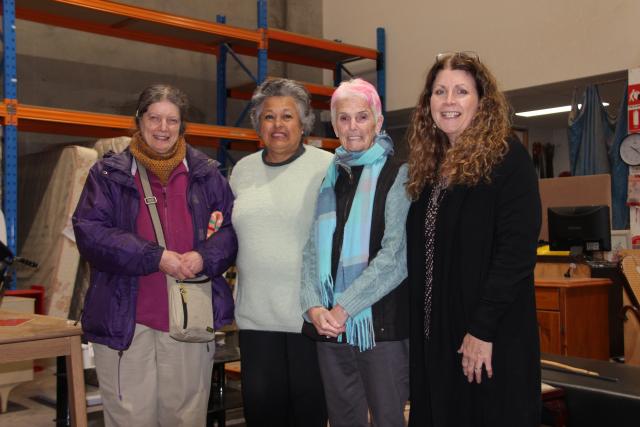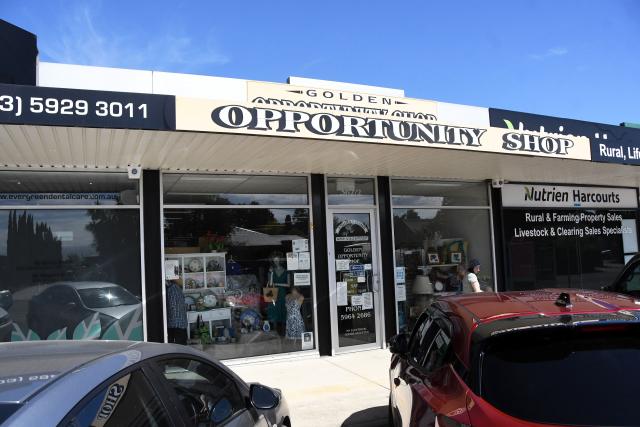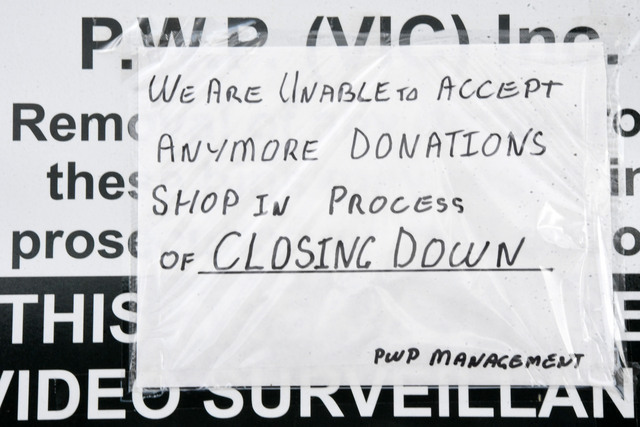By Callum Ludwig
A concerning rise in the number of community op shops having shut down or facing closure has arisen in the Yarra Ranges and beyond, despite op and thrift shopping becoming an ever more popular pastime.
Close to home, Anglicare’s Anglicare’s Treasure Chest Op Shop in Lilydale closed from 30 June 2023, the Tecoma PWP Op Shop closed in September 2023 before being revived by a passionate local from the Basin, the Coldstream Op Shop closed for two months from January this year before new owners were able to take the reins and the Golden Opportunity Shop in Wandin North is facing closure currently without someone new to look after it.
Declining volunteer numbers, ageing volunteer populations and rising operational costs have all been cited as reasons behind the struggles.
Associate Professor Craig Furneaux leads the team at the Australian Centre for Philanthropy and Nonprofit Studies (ACPNS) at Queensland University of Technology (QUT) which researches and teaches philanthropy, nonprofit and social enterprise skills to people across Australia.
Assoc Prof Furneaux said charity retail and op shops have been around for decades as a way for people in the community to give and for charities to channel revenue to important needs.
“The beneficiaries range from local to international causes and from animals to
environments to people. There are thousands of outlets and many more volunteers, and some paid staff in larger organisations,” he said.
“Op shops facilitate in-kind giving and that’s critical to Australian philanthropy, not everyone can or wants to give cash, or they might want to help in as many ways as they can so want to donate goods as well as cash to their favourite cause or community.”
In-kind giving is the act of donating or contributing something other than me and can take the form of voluntary labour like that of the volunteers of op shops or donated goods, such as the items given to and sold in op shops themselves.
The ACPNS was commissioned by the Australian Government in 2016 to conduct the ‘Giving Australia’ paper, considered to be the largest research effort into philanthropy in order ‘to understand how, why and how much Australians give to charity.’
In the research, the ACPNS heard from focus groups and in interviews that in-kind giving and goods-based donations were perceived to achieve ‘100 per cent potential benefit’ compared to cash donations where scepticism remained about how much money actually made it people in need and provided a way to give for those who couldn’t financially.
Assoc Prof Furneaux said op shops have always been important for people watching their funds and with changed attitudes to second-hand goods are now also popular with people who purchase to resell or ‘flip’ items.
“The circular economy, the move to recycle and an awareness of sustainability, effective consumption and waste have made donating to/buying from op shops a way that people express their values,” he said.
“Vintage shopping also is a perennial motivation for some and nostalgia and style are drivers here,”
“It’s been a growth area – in op shop numbers, innovation and sometimes but not always contribution to income and apparently that’s been an international trend.”
Some larger organisations have also pulled out of or reduced the number of op shops they operate: Vision Australia pulled out of operating op shops in late 2019 into early 2020, Doncare has closed op shops at locations across the state since the beginning of the Covid-19 pandemic and Animal Aid last week had to close their Lakes Entrance location.
Assoc Prof Furneaux said there’s a range of reasons op shops may close.
“Forces like the pandemic affecting face-to-face activities – and affecting volunteering, as volunteers are what make charity retailing viable and potentially profitable. Volunteers may be great or sometimes not able to be consistent so resourcing the shops can be a challenge,” he said.
“Pricing can be a balancing act – often done by volunteers with limited time to check if nearby discount chains are selling items new for less. Donors expect good quality items to be priced higher than what buyers are expecting in the op shop setting. People definitely highlight that prices are up in op shops while so many items can be donated that may be of unsuitable quality and transporting, sorting and storage can be big tasks.”
“Op shops are businesses and the usual success factors apply from marketing and promotion to building store traffic to managing team matters and compliance issues. Charities always have to assess if their efforts could make more money for their mission elsewhere.”









